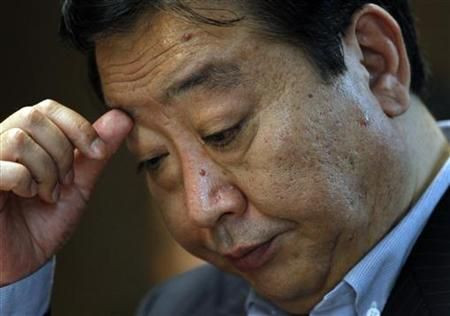New Japanese PM Vows Gradual Phase-out of Nuclear Energy

The new Prime Minister of Japan has pledged that he will phase out nuclear power, six months after a devastating earthquake-tsunami created a nuclear emergency crisis in the country,
In his first speech as prime minister, Yoshihiko Noda, who replaced the unpopular Naoto Kan, said it is “unrealistic” to construct any new reactors or to extend those nuclear plants that are approaching the expiration of their life spans.
Noda, the former finance minister and a fiscal conservative, also vowed to rebuild Japan’s stagnant economy.
“Speeding up the recovery and reconstruction process [from the nuclear disaster] is our biggest mission. We must also work to bring the nuclear crisis to an end as swiftly as possible,” he said.
“But our finances are also on the brink. We must strike a balance between economic growth and fiscal discipline.”
However, he cautioned that eliminating dependence on nuclear power would be gradual – indeed, some idle nuclear facilities will be re-started, subject to strict safety checks and the approval of local communities.
“To build new reactors is unrealistic, and we will decommission reactors at the end of their life spans,” he said. “But it is also impossible to immediately reduce our dependence to zero.”
In order to help pay for the reconstruction, Noda said his administration will cut wasteful spending in other areas of the budget.
Noda, the sixth Japanese Prime Minister in as many years, also vowed to enact policies to curb the climbing value of the yen, which is hurting exports.
Separately, Noda backtracked on an earlier plan to visit a controversial war shrine in Tokyo that the Chinese and South Koreans believe glorify war criminals from the second world war.
David Rea, the Japan economist at Capitol Economics, said Noda faces some huge uphill challenges.
“The election of a new prime minister is as unlikely to mark a change in the politics of Japan as it is to change the economic outlook,” he said. “Whilst we sincerely hope new Prime Minister Noda can provide the leadership Japan so greatly needs, we suspect his tenure will be cut short by a party that is all too happy to jettison its leader at the first sign of falling popularity.”
However, Rea indicated that Noda appears to be a good choice for the top job at least from an economist’s standpoint.
“He is keen to get Japan’s public finances back on a sustainable path and has advocated increasing the sales tax to reduce the deficit. From a business perspective, he has also vowed to make combating the impact of the strong yen a priority. Nonetheless, he will have his work cut out just staying in the job.”
© Copyright IBTimes 2025. All rights reserved.





















